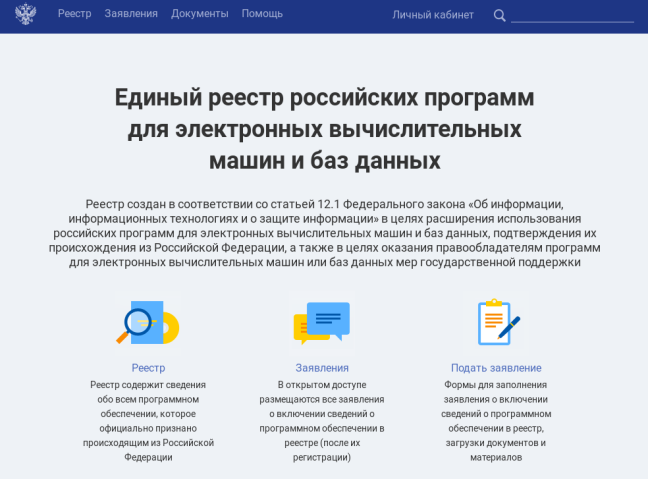The Russian Federation aims to rid its public services of reliance on foreign software suppliers. The objectives are for Russia to gain control over the software that is uses, and to create independent and economically beneficial solutions. The policy is a roadblock to using open source, says one of the country’s open source advocates.
In 2017, the government scrapped its 2015 plans to use procurement rules to direct public services towards open source software. Instead it launched a unified register for software solutions that can be used by public services.

This ‘Unified Register of Russian Programs for Electronic Computers and Databases’ lists solutions that are at least 50% owned by a Russian legal entity, or where less than 30% of the revenue goes to foreign beneficiaries, or that are based on open source software where the intellectual property is under control of a Russian company or entity. At the end of 2017, the register contained over 4,000 software solutions,Wikipedia quotes a report from the Ministry of Communications.
Still - the Ministry of Digital Development, Telecommunications and Mass Media promotes the use of open source software. This helps the Russian Federation become self-reliant and independent of foreign suppliers of proprietary software, the ministry explains on its web portal.
The 2015 proposal ‘On the procurement of proprietary and free software’ was rejected by the Duma (the Federation Parliament’s lower house) in September 2017, confirms Sergey Bush, founder of the “Foundation for Open Source Development 2.0” (SPO20). “Instead of fully embracing free and open source software, the Federation has turned to idea of ‘national software’ and listing of such software for the government end government-owned enterprises.
It is not easy for open source go through this filter, mr Bush says. "For example, you must prove that you’ve made substantial changes to the original code base, and that you or a Russian entity own the copyright to those changes.”
More information:
Earlier OSOR news item
Wikipedia entry on the Unified software register (in Russian)

